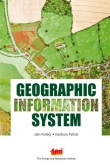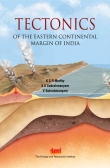Geoinformatics for Climate Change Studies
Book Details
Climate change is increasingly being considered a critical topic in research and policy-making. Evidences related to climate change deal with spatial and non-spatial data, which can be utilized for policy formulation. Geoinformatics, which includes remote sensing, GIS, GPS, and ICT, provides the most relevant technology to monitor climate change-related variables at different dimensions and scales.
Geoinformatics for Climate Change Studies discusses the art of using this technology for investigating, monitoring, documenting, and understanding the impacts of climate change. This book provides information on the concepts and uses of geoinformatics, and focuses on filling the gap in the available literature on the subject by bringing together concepts, theories, and experiences of experts in this field.
Key Features
-
• State-of-the-art technologies in geoinformatics vis-á-vis climate change are discussed
• Text supported by self-explanatory GIS maps
• Extensive data and study support the use of geoinformatics in climate change.
Table of Contents
-
• A GIS-based framework for Earth systems modeling and global design
• Climate – Population – Energy: Prognoses for 2050
• Geoinformatics and communication technologies for climate change hazards: using beyond the technical issues
• Geoinformatics and the mapping of lands vulnerable to sea level rise
• Geoinformatics concepts, methods and toolsets for comprehensive impact assessment and analysis of climate change for IWRM
• Geoinformatics for Climate Change Adaptation and Disaster Risk Reduction – a perspective
• Geoprocessing for soft mapping of sparse and inaccurate evapotranspiration data
• Impact of climate variability on human health
• Impact of EIA studies and implications on climate change in Nepal
• Reactions of mountain glaciers to climate change – a remote sensing approach
• Spatial data infrastructure convergence: Building SDI bridges to address climate change at catchment scale
• Geoinformatics for climate change research
• Forestry
Click here for brochure in PDF, Click here for Poster
Keywords
You may also like...
-
 Geographic Information System
Regular Price 225.00
Special Price 203.00
Geographic Information System
Regular Price 225.00
Special Price 203.00
-
 Tectonics of the eastern Continental Margin of India
Regular Price 1495.00
Special Price 1346.00
Tectonics of the eastern Continental Margin of India
Regular Price 1495.00
Special Price 1346.00


